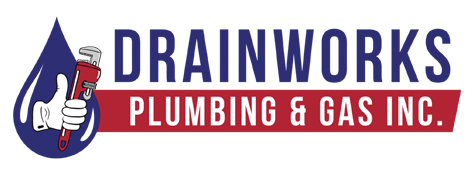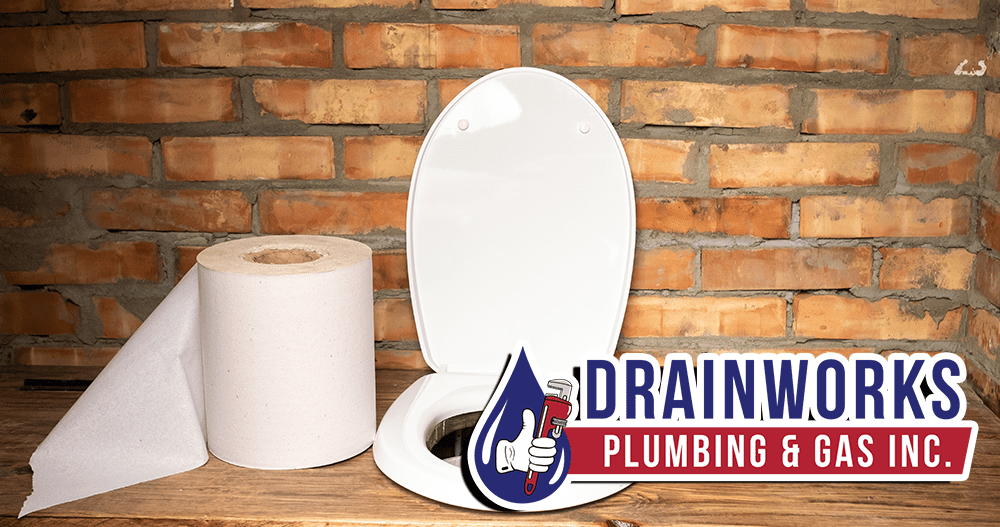Proper Septic System Maintenance
As a homeowner, knowledge on proper septic system maintenance will help you avoid expensive repairs and guarantee that your system works efficiently for many years to come. Septic systems are made to be reliable and self-sufficient when properly maintained. We at Drainworks Plumbing & Gas in Brandon, Florida recognize how critical it is to keep your septic system in good shape, and we’re here to provide you some advice.
Knowledge of Your Septic System
It’s critical to comprehend how a septic system functions before moving on to the advice. Your home’s sewage is managed and treated by your septic system, a private wastewater treatment system. The wastewater from your home flows to the septic tank when you flush the toilet, run the dishwasher, or do laundry. There, the particles settle to the bottom and the liquids drain to the drainfield. Solid waste is broken down by bacteria in the septic tank, and the filtered wastewater is then distributed into the drainfield, where the earth further treats it. Maintaining your septic system correctly is essential to avoiding clogs, backups, and eventual system failure.
Continual Pumping
Regular pumping is one of the most crucial components of septic system upkeep. Generally speaking, depending on the size of your tank and the number of people living in your home, your septic tank should be drained every three to five years. By pumping your septic tank, you may get rid of the accumulation of solid waste that can cause obstructions and backups. Your system will continue to run efficiently with regular pumping, which also helps to delay system failure.
Keep Non-Biodegradable Things Out of the Toilet
Flushing non-biodegradable objects down the toilet is one of the most frequent reasons of septic system clogs. Wet wipes, paper towels, and feminine hygiene products can all clog your pipes and result in backups. Do not flush anything that won’t decompose, including toilet paper and human feces. The trash should also be used to dispose of grease, fats, and oils because they can harden in your pipes and cause clogs. Make sure your young children are aware of what they can and cannot flush down the toilet if you have any.
Protect Water
Another crucial component of septic system maintenance is water conservation. An overabundance of water in your septic system might overburden it and result in backups. Install low-flow showerheads and toilets, mend any leaky faucets, and refrain from running a lot of water at once to prevent this. To save water, spread out your laundry loads over the course of the week rather than doing them all at once, and think about switching to more energy-efficient appliances.
Steer Clear of Chemical Drain Cleaners
Chemical drain cleaners might appear to be a simple and quick solution for clogs, but they often cause more harm than good. The helpful bacteria in your septic tank that break down waste can be killed by these harsh chemicals. To unclog obstructions, use a plunger or a drain snake. Call a qualified plumber who can assist you clear your pipes without harming your septic system if you’re unclear of how to unclog a drain without using chemicals.
Use Septic-Safe Goods
Another crucial element of keeping a healthy septic system is using items that are safe for septic systems. Cleaning items with harsh chemicals can damage the bacteria in your septic tank, which can cause blockages and other problems. Utilize only items that are safe for septic systems, such as those that are “biodegradable” or “septic-safe.” Be careful what you flush down the toilet or pour down the drain, and don’t use too many household cleaners or antibacterial soaps.
Keep Large Machinery Away From the Drainfield
The water that leaves your septic tank is filtered by your septic drainfield. Heavy vehicles, such as cars and trucks, must be kept away from the drainfield to prevent compacting the soil or harming the pipes. Your drainfield’s efficacy can be hampered by compacted soil, which can also lead to backups. Furthermore, you must avoid planting any kind of vegetation close to your septic system because the roots of those plants can corrode your pipes. Over your drainfield, only grow grass or groundcover with short roots.
Continual Inspections
Frequent septic system inspections will help you find possible concerns before they become serious ones. We provide expert septic system inspections at Drainworks Plumbing and Gas to make sure your system is operating properly and to spot any potential issues. Our professionals will examine your tank’s condition, look for wear and tear, measure the percolation of your drainfield, and analyze any potential dangers like tree roots or leaks. You may save money on repairs and make sure that your septic system runs efficiently for many years by setting up routine inspections.
Make Smart Usage of Your Septic System
Overloading your septic system might result in backups and other problems because it was not built to manage an excessive volume of waste. Consider what you flush down the drain or pour down the sink, and try to use less water where you can. Use sparingly as utilizing the garbage disposal might overtax your septic system and result in backups. For food waste, use a compost bin; for the disposal of dangerous substances or chemicals, use a hazardous waste facility.
Conclusion
In conclusion, maintaining your septic system properly is essential to guaranteeing its longevity and efficiency. By heeding the advice given above, you can keep your septic system running properly for many years to come without having to make any expensive repairs.
Keep in mind to schedule routine inspections, use septic-safe products, avoid flushing non-biodegradable objects, conserve water, avoid using heavy machinery on the drainfield, and have your septic system pumped on a regular basis. You can maintain the health and efficiency of your septic system by following these easy procedures.
All of your septic system needs can be met by Drainworks Plumbing & Gas. To arrange an inspection or to find out more about our services, get in touch with us right now.



